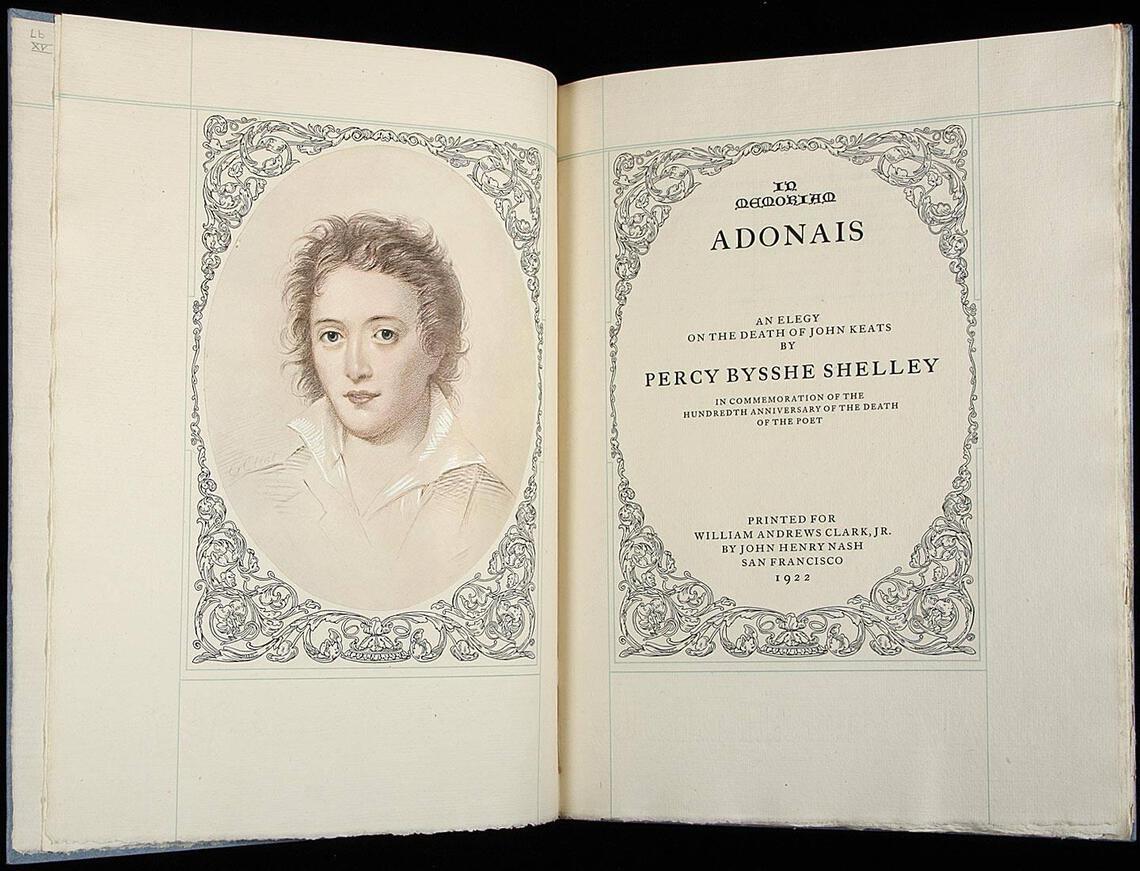Adonais, an elegy on the death of John Keats
-
An elegy written after the youthful death of his friend John Keats, Percy Bysshe Shelley’s “Adonais” laments the loss of Keats’ supreme intellect and transcendent spirit through a procession of mourning allegories. Eventually, the narrator instructs the mourners to cease their lamentation because Keats has “outsoar’d the shadow of our night” and now lives in the “white radiance of Eternity.” As the poem inducts Keats into the literary hall of fame, it also separates him from the earthly masses and weds him to the divine–a quintessential romanticization of genius. See the stanza displayed here in which Shelley, after comparing Keats to the sun, charts the rise of his “godlike mind” above the “swarms” of earth.
Introduction
- Label
- Adonais, an elegy on the death of John Keats
- Author
- Percy Bysshe Shelley
- Original Publication Date
- 1821
- New Publication Date
- 1922
- Publisher
- J.H. Nash
- Location
- RBML
- Case
- 1
